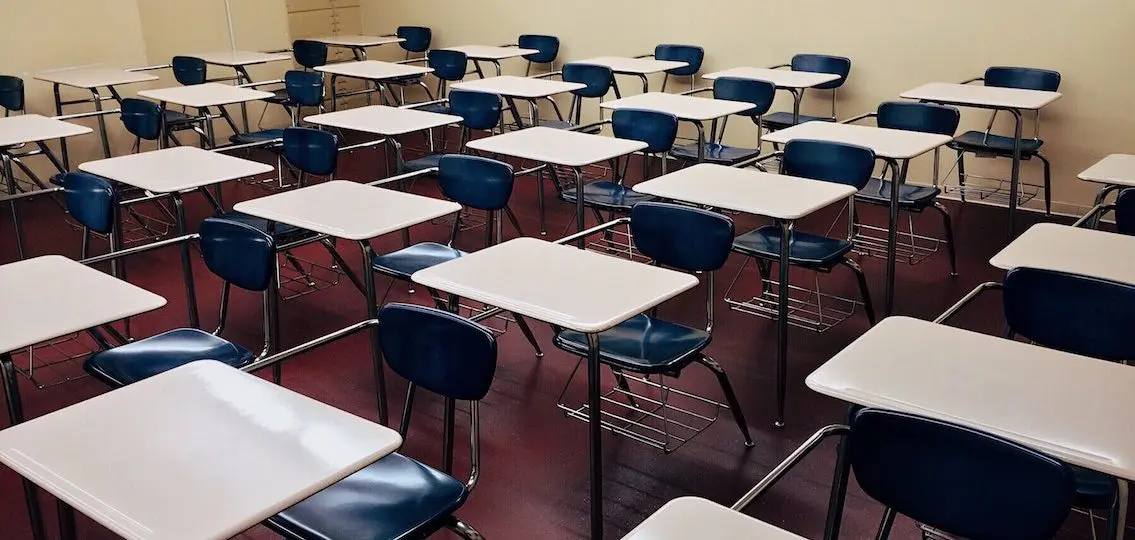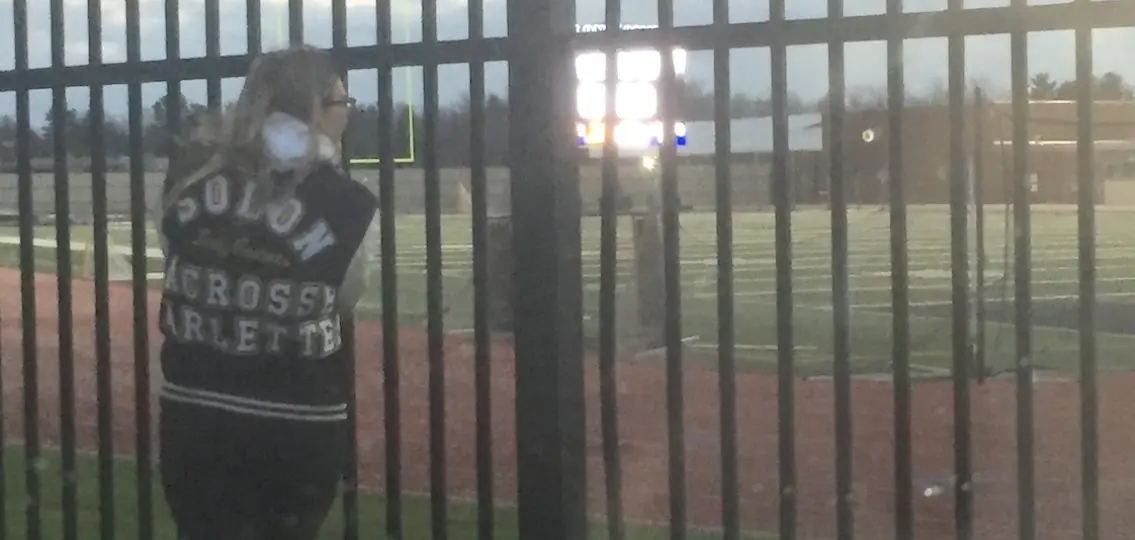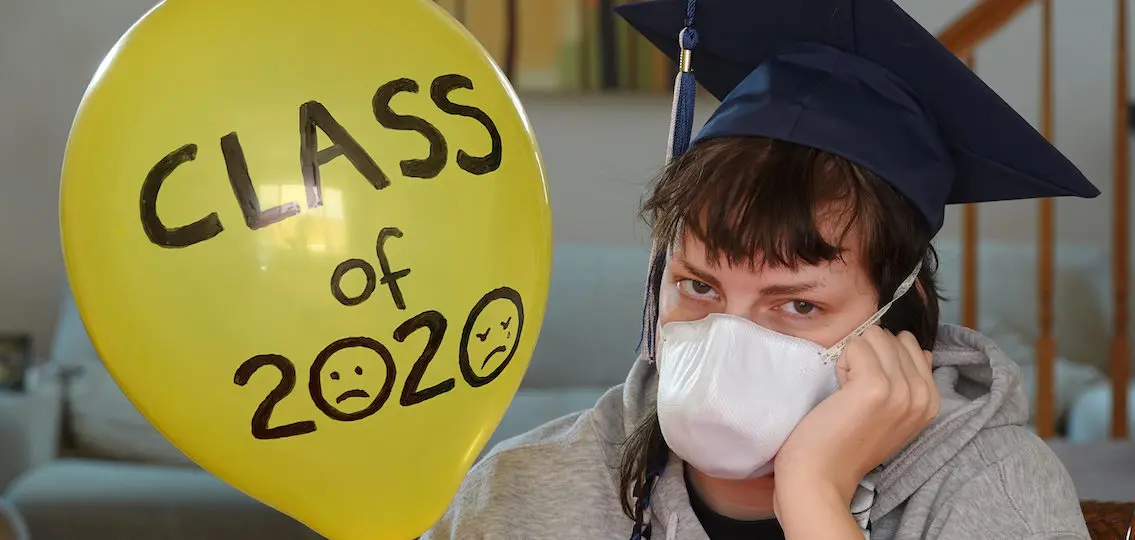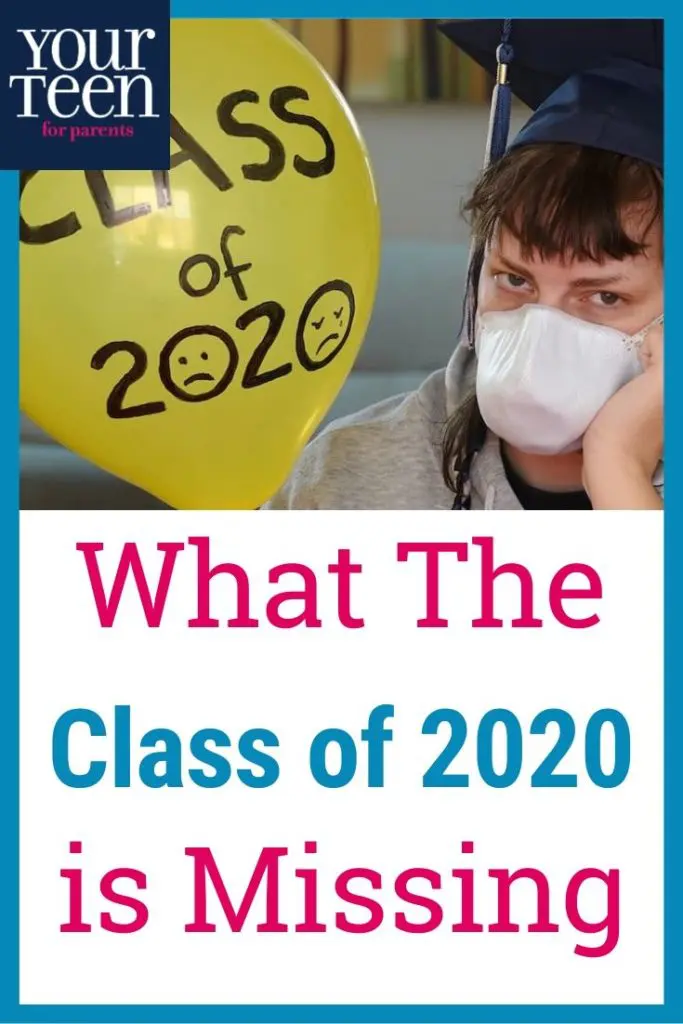When my high school senior’s prom was canceled, he shrugged.
Proms are really not his thing. Honestly, I think he, a classic introvert, might have been relieved to dodge the elaborate photo shoot with swarms of his classmates and their parents in the sweltering Florida spring heat, sweat dripping down foreheads and no-see-ums nipping at necks, before driving an hour to a resort for dinner and dancing—something he does not do, ever, unless he is trying to beat me at “Just Dance.”

The truth is, my son has been mostly sanguine about his lost senior spring.
There is no doubt that COVID-19 has robbed him and his friends of all the glory at high school’s end: They still have assignments and quizzes and AP exams; they just don’t have any of the fun stuff that is supposed to accompany all that—fun they earned by showing up the past three and a half years and doing the work. He’s taking it in stride, though, as are many of his classmates.
In the larger scheme of things, we are all surviving a global pandemic in real time, and these milestones of senior year are not important compared to the 90,000 and counting human souls in the United States alone who have been lost this spring. My son will be fine without his senior milestones.
Yet, when I pull back and think about what the sum of all those those milestones meant to me back when I was graduating, I worry.
These high school seniors walked out of their school buildings one day in March and never returned. For most of them, they had yet to turn the corner toward the parade of “lasts” that make up senior spring—prom, yes, but also Senior Skip Days, awards nights, senior picnics, last games and plays and performances, the last day of exams, locker clean-out—all the big and little moments, the tiny steps on a path that leads them to the graduation stage.
As a GenX parent, I think of those last sweet days of high school as iconic. I flash back through the movies that made me, starting with Grease, then Dazed and Confused, Pretty in Pink, Say Anything. To this day, I can’t think of a valedictorian’s speech without envisioning the character Diane Court saying to her classmates, “I’ve glimpsed our future, and all I can say is, go back.” I still have cassette tapes with homemade covers made from magazine clippings with playlists like “For Just a Moment,” “These Are the Days,” “This Is the Time,” and my own high school senior class song, “It’s So Hard to Say Goodbye to Yesterday.”
There’s a reason that this time of life makes for good drama and cheesy (but come on, awesome!) songs.
In a year without a global pandemic, these months are the end of childhood. Each “last,” even when the seniors don’t expect it to be a big deal at all, comes with a little pang of recognition that they are leaving something behind. Eventually, that pang is accompanied by the revelation that they are also moving toward something—their futures, whatever they are—as they finally begin to crystallize.
That’s what usually makes the month of May so bittersweet—it’s both nostalgic and hopeful, packed with loss and gain. What feels like an ending is also a beginning, and this is the first time these young adults realize that, even if only in hindsight.
I worry that these high school seniors, including my own, are not experiencing these incremental and transformative moments. I know that living through this and being the class that shoulders the burden of walking into the world with masks on will make them stronger in the long run and will likely produce better and more resilient adults and leaders in some ways.
But I also wish they didn’t have to be so strong or so resilient.
I wish they had their last days to be goofy kids, to make mistakes, to kiss the wrong people, to kiss the right people, to sign each other’s yearbooks with clichés and acronyms they won’t understand when they are 45, to hug their teachers goodbye or to walk through those school doors for the last time with that singular feeling of freedom that only comes when you know that finally, for the first time in 13 years, you really don’t have any homework at all.
(Cue the Soupdragons’ “I’m Free,” popular in my senior year of high school, a song that still makes me want to throw my head back and sound my barbaric yawp.)
So when my senior wants to order a pizza at midnight—just because—we do.
When he wanted to go to the beach and he still had school assignments, I told him to stay 10 feet away from everyone, to take his mask and hand sanitizer, and to have as much fun as he can under those conditions. When he plays Fortnite with his younger brother when he should be sleeping, I turn a blind eye. I’m going to try hard this summer to give him the chance to have the last golden days of his childhood before he moves on to the middle place that is college—even if college has to begin from his laptop in his bedroom.

This is the part of the essay where I should wrap things up with a figurative bow. I show transcendence and perspective and leave you with a new insight.
I’m sorry, I can’t do that. This spring is out of balance, and I can’t change that for him or anyone else. This May was one more of loss than of gain, no matter what I do. I am resolved to appreciate and focus on the silver linings, have faith that things will work out in the end, and believe that at some point, when he looks back on this time, my firstborn will see more to these months than just what he missed.
Maybe that is enough.





